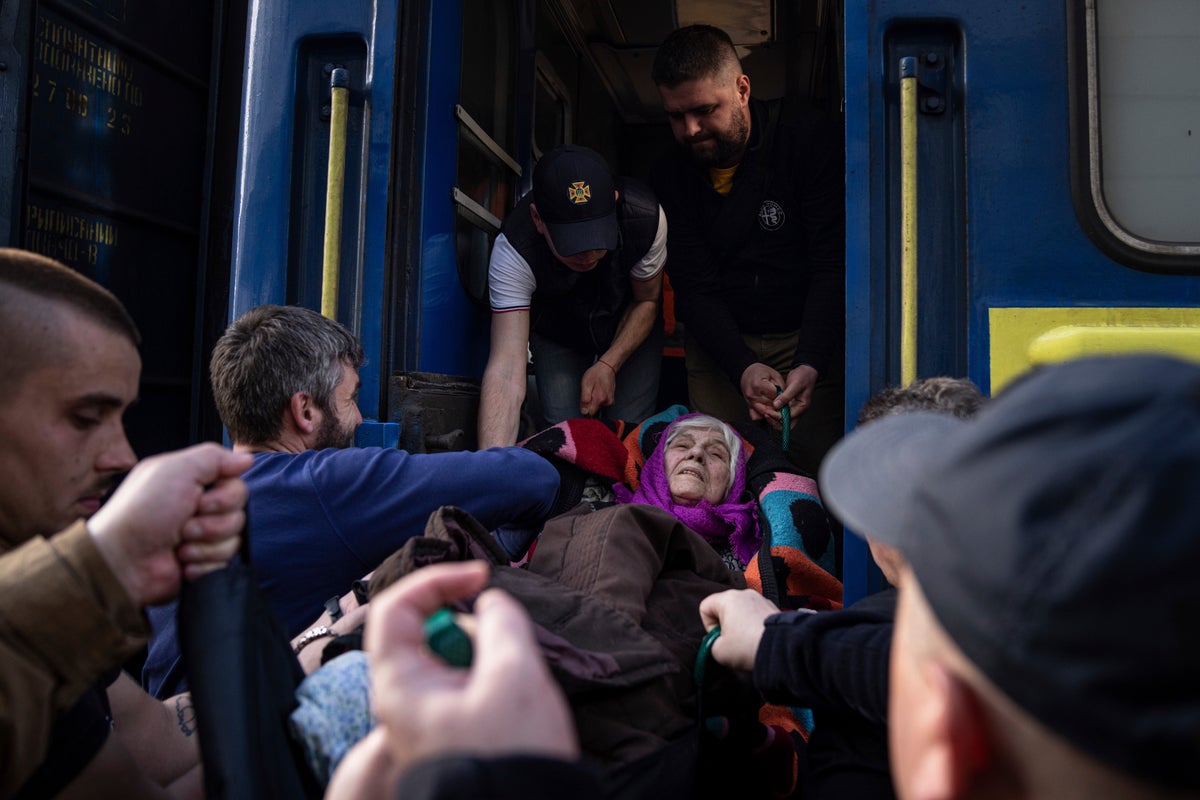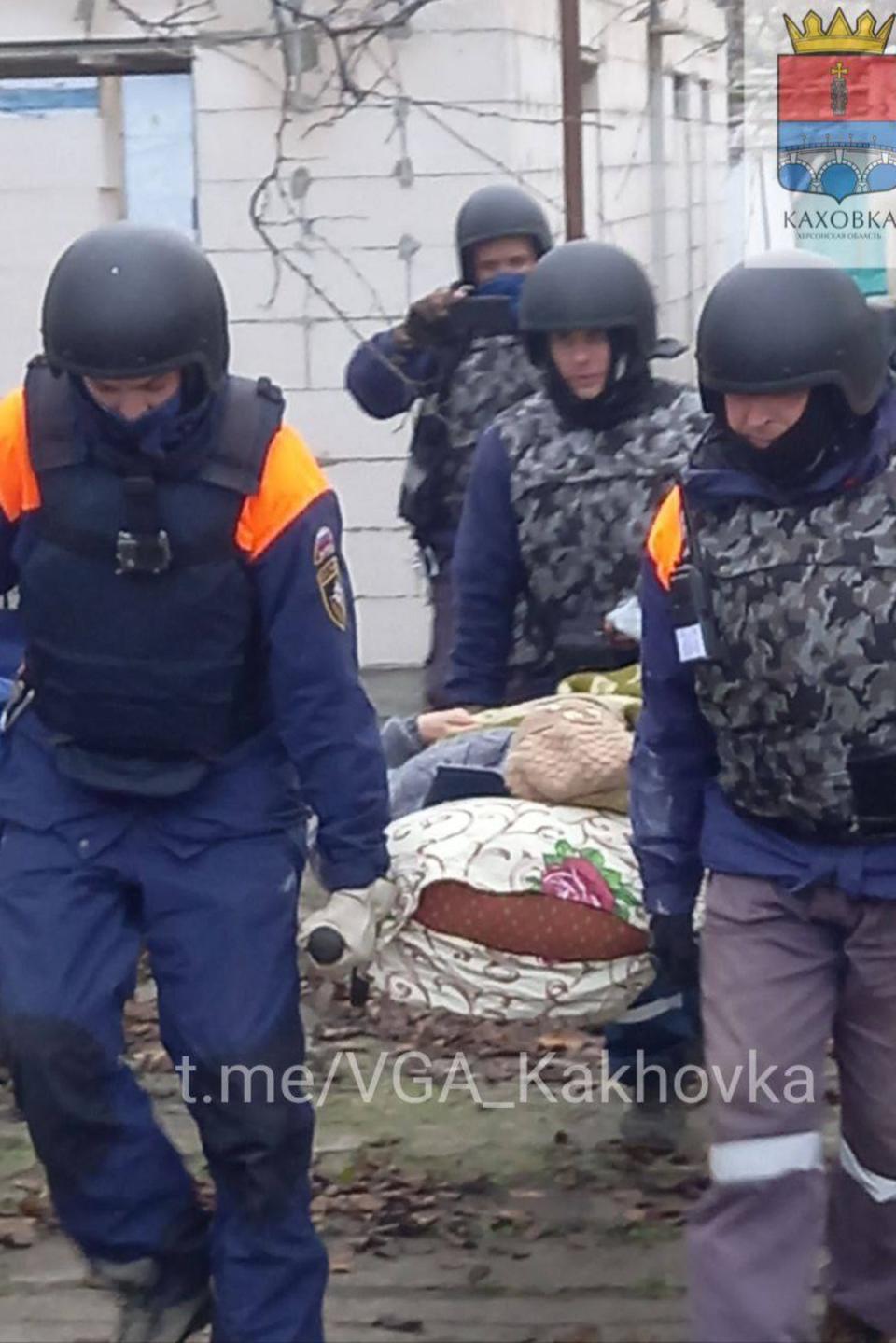An 18-month investigation by The Independent that found new evidence that Russia may have committed war crimes against disabled people in Ukraine is a “really important” part of “creating more awareness and visibility” about the devastating impact the invasion has had on the disability community, a special adviser to the Biden administration has said.
Sara Minkara, the US State Department’s special adviser for international disability rights, released a three-part report revealing that at least 500 people with disabilities, including children, were forcibly transferred to Russian territory and within Russia, often incommunicado, kept in poor conditions, and forced to obtain Russian passports in order to receive medical treatment and care.
The multi-part series also documents other crimes that may have been committed by Russian forces, including the use of disabled Ukrainians as human shields and the deaths of some who were deprived of food and vital medicines.
Minkara said the study was important because disability communities around the world feel they are a “tolerable loss” in conflicts due to a lack of information and reporting.
“In the disability community, we say it’s an acceptable loss. And a big reason behind all of this is data collection and storytelling. If we don’t count disabled people, we don’t count. And I think that’s a really important point from the perspective of the crisis and from the perspective of disabled people.”
She added that she would like to see a future where “society feels the costs and losses that come from not including the disability community in all policy making.”
“I think reports like this are really important to raise awareness and bring this into the mainstream.”
Her comments echo those of Gerald Quinn, who served as the UN Special Rapporteur on the Rights of Persons with Disabilities until November and has worked extensively on Ukraine, who said The Independent’s research was “an important step towards a wider debate” and “painted a poignant picture” of the vulnerabilities faced by disabled people in the Ukraine war.
Over 18 months, The Independent has tracked the disappearance of at least 500 disabled people, from children to elderly people, who were taken by Russian authorities from facilities in occupied Ukraine but found deep inside Russian territory or inside Russia. The 500 figure is the only case The Independent has been able to independently verify, but Ukrainian authorities believe the actual number could be in the thousands.
The incidents, which took place between October 2022 and summer 2023, were confirmed through interviews with those who were illegally taken, families of the missing, staff at the targeted facilities and charities searching for the missing. The Independent also tracked an official Russian Telegram group of the occupation regime that boasted of attempts to remove hundreds of people from the facilities. We used open source tools, including satellite imagery, to verify the alleged locations. Russia denies violating international law.
In many cases, those taken were misled or lied to about what was happening to them: they were held in isolation in squalid conditions and forced to obtain Russian passports in order to receive treatment and care.
I think this report is very important to raise awareness and bring this into the mainstream.
Sarah Minkara, U.S. Special Advisor for International Disability Rights
The fate of the majority remains unknown, but there is evidence that some of the children have been sent to “re-education camps” to learn Russian language, culture and history in the Kremlin’s version. Ukrainian authorities claim that the targeting of people with disabilities is part of a broader, systematic Russian effort to “erase Ukrainian identity” and may amount to “ethnic cleansing”.
The Independent’s series hopes to spark a paradigm shift in thinking about people with disabilities, both in Ukraine – where there are now tens of thousands of new amputees – and in conflict zones around the world where international laws and protections seem to be failing to protect the most vulnerable.
Minkara said people with disabilities in crisis situations are two to four times more at risk not because of their disability, but because systems around the world “are not thinking about us or our needs”.
“Whenever a crisis occurs, there are often delays in the response in the first weeks, days and months in terms of evacuations, humanitarian assistance and support for disability communities,” she said.
“You can’t get to bomb shelters or evacuation buses. There are challenges at the border. We saw this in Ukraine, but we see this in every crisis around the world.”
The official number of people registered as disabled in Ukraine is 2.7 million, but the United Nations estimates the actual number is more than double that.
The administration in Russia-occupied southern Ukraine released photos of disabled people it had removed from a facility in the southern Kherson region (Telegram)
Tens of thousands of people live in facilities across the country where conditions have been described as “appalling” by UN experts.
The prevalence of boarding schools, orphanages and foster homes is a tragic relic from the Soviet era, when support for families was completely nonexistent and instead the institutionalization of children with intellectual, physical and psychosocial disabilities was encouraged.
Many disabled people have spent their entire lives in these institutions with little contact with their families, and disability rights groups want to dismantle the system as Ukraine undergoes broader reconstruction.
Minkara called on the world to make the disability community an integral part of Ukraine’s recovery plan, especially after the recovery conference held in the German capital Berlin last month, where representatives from dozens of countries signed and pledged more than €6 billion in agreements, including support for the reconstruction of critical infrastructure.
Minkala called on all government leaders to “help build a green and accessible Ukraine.”
“If we don’t consider rebuilding in a way that ensures full accessibility, it will be a missed opportunity,” she added.
“Today we often hear words like sustainable Ukraine, green Ukraine. I want Ukraine to always be an accessible country.”


